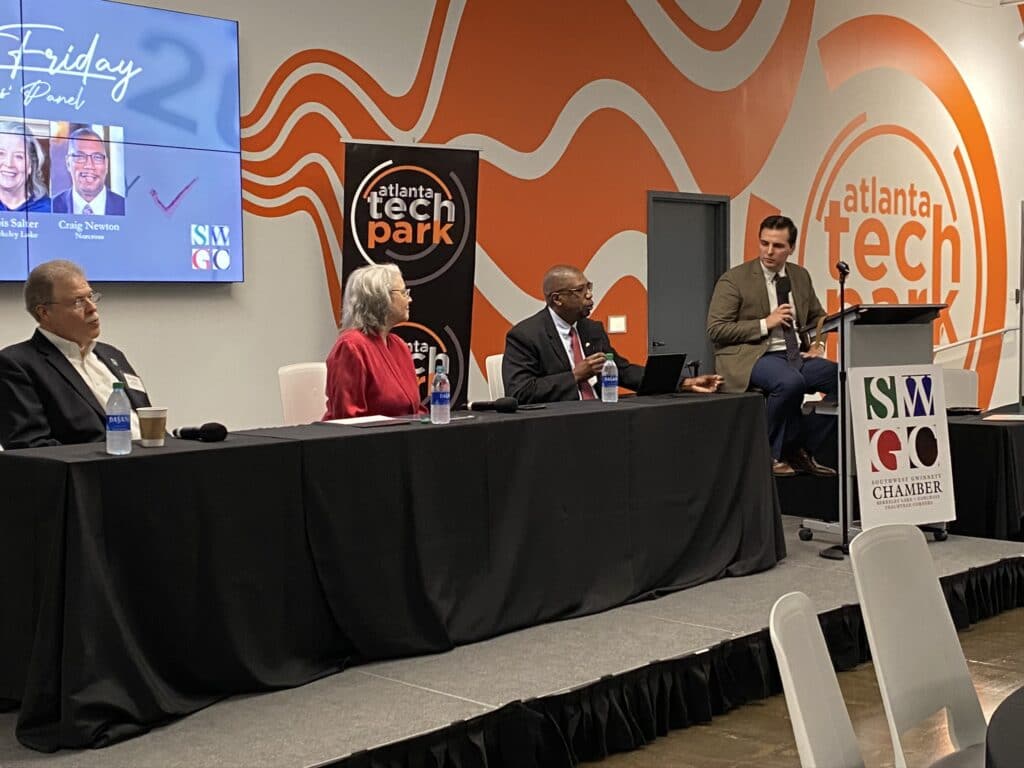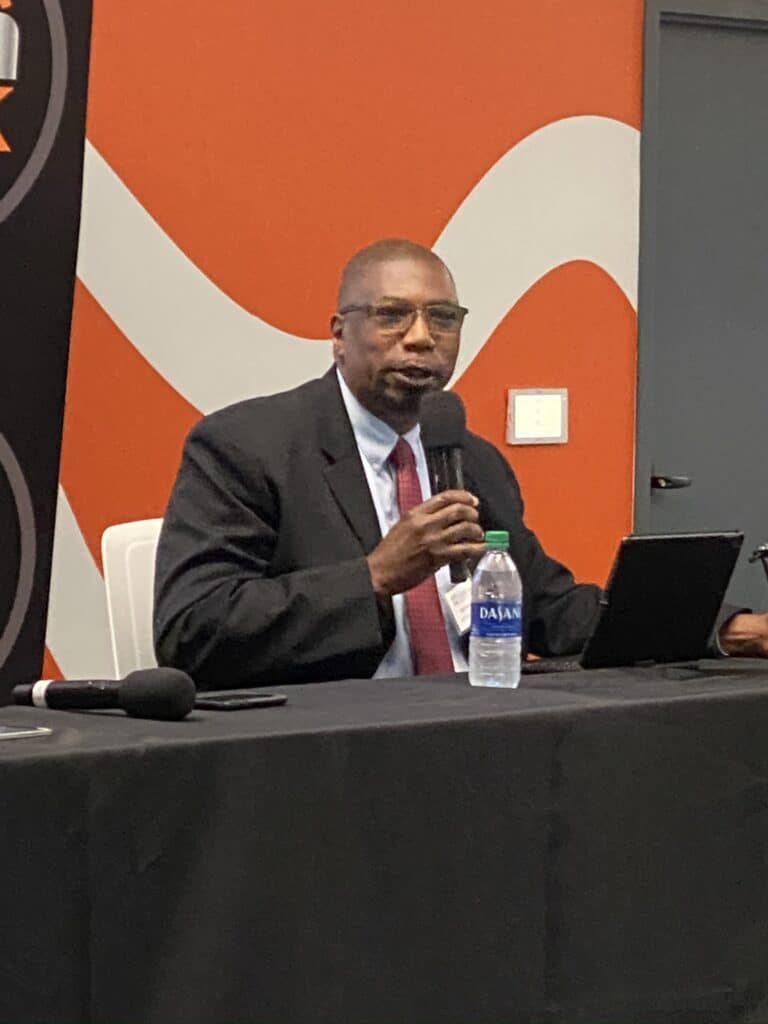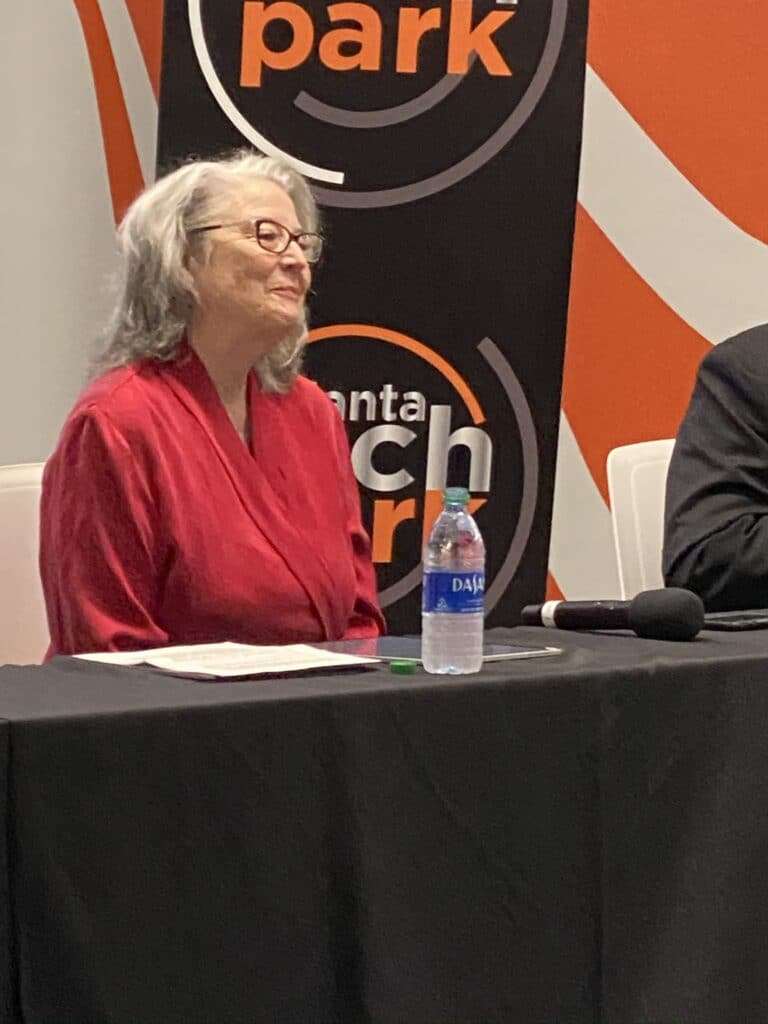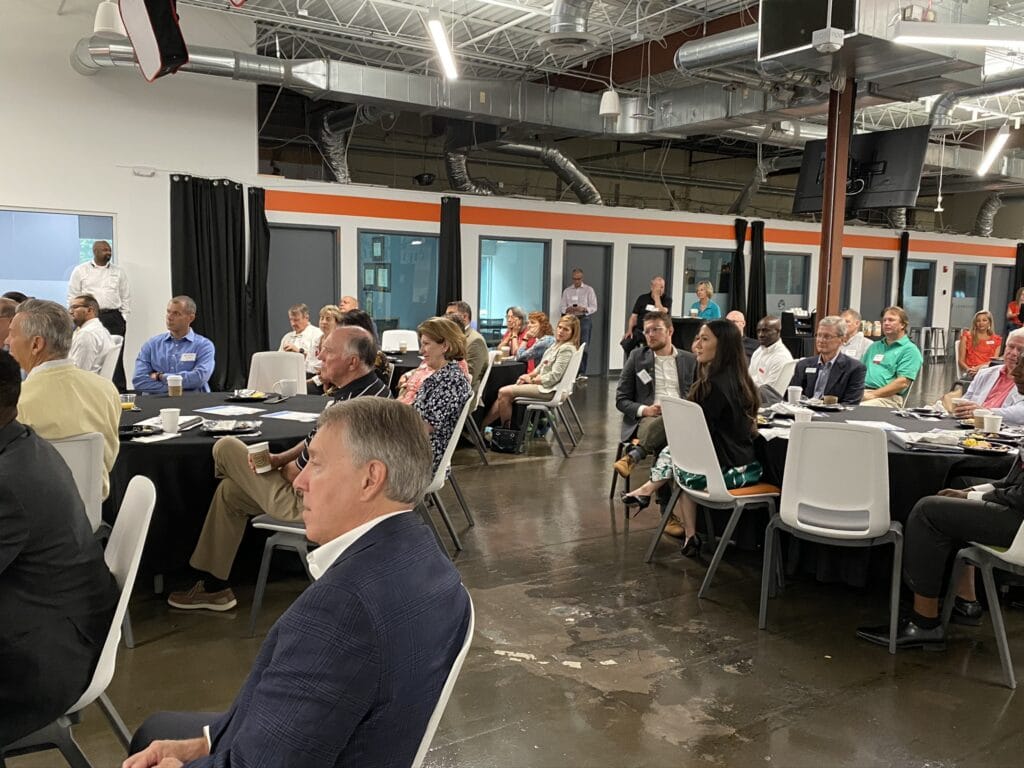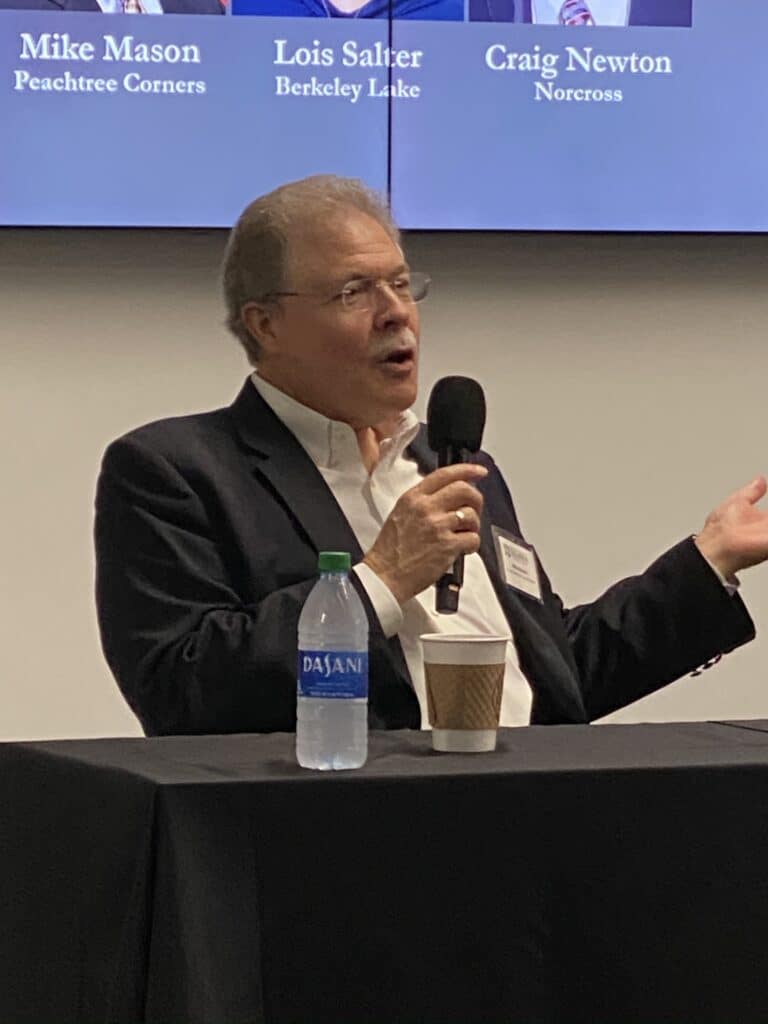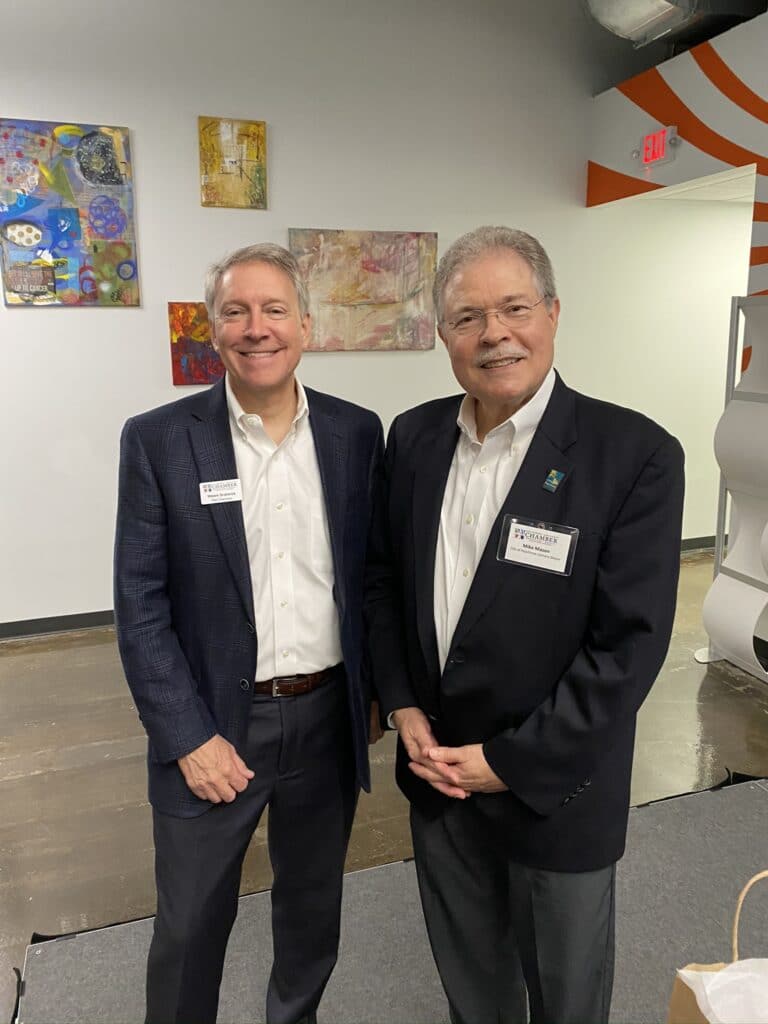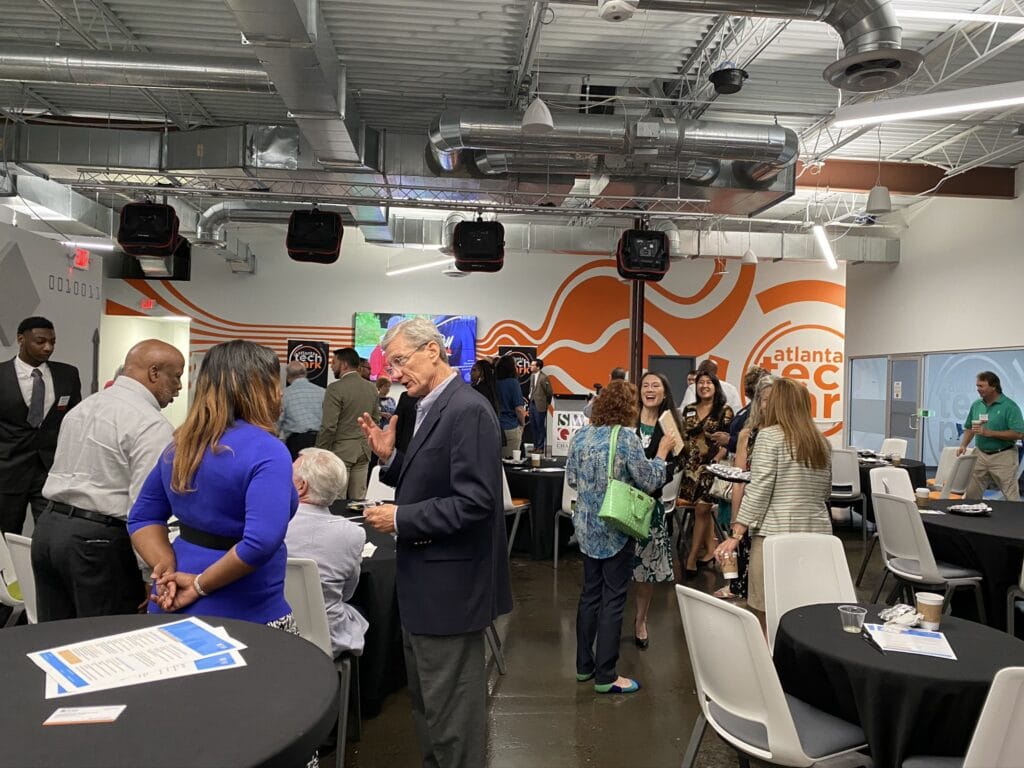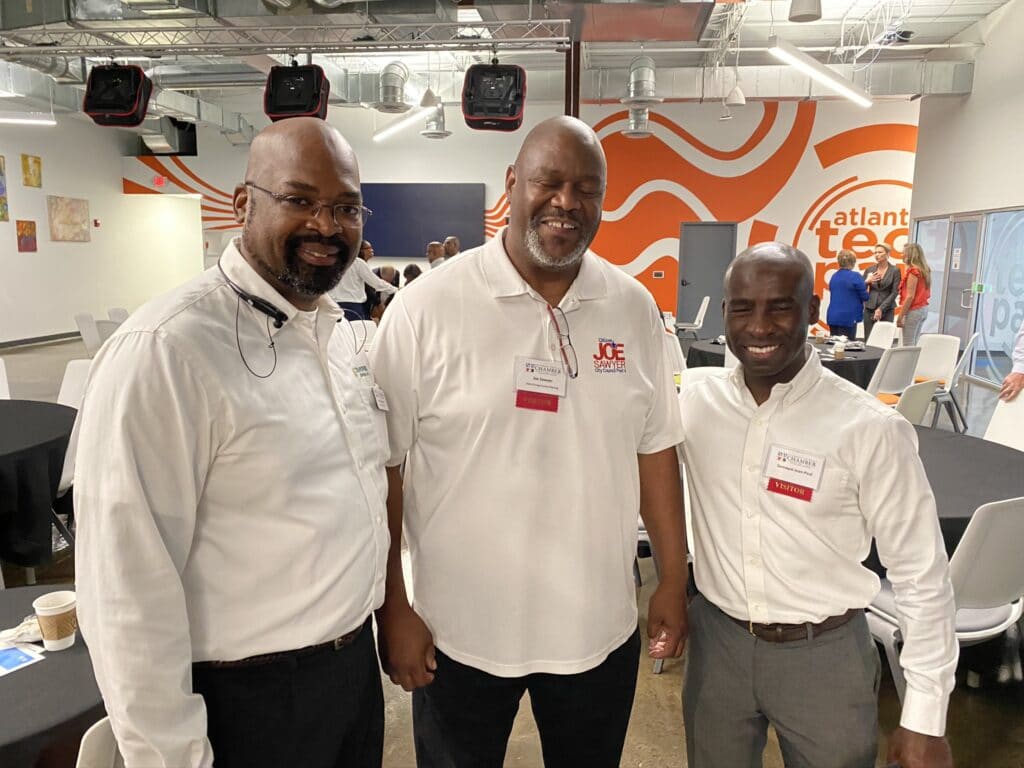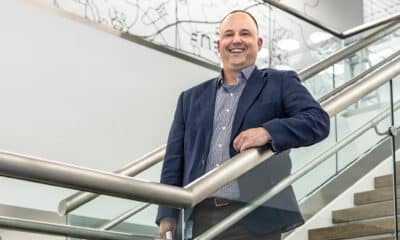City Government
Three city mayors discuss post-COVID-19 improvement plans
Published
3 years agoon
By
Mark Woolsey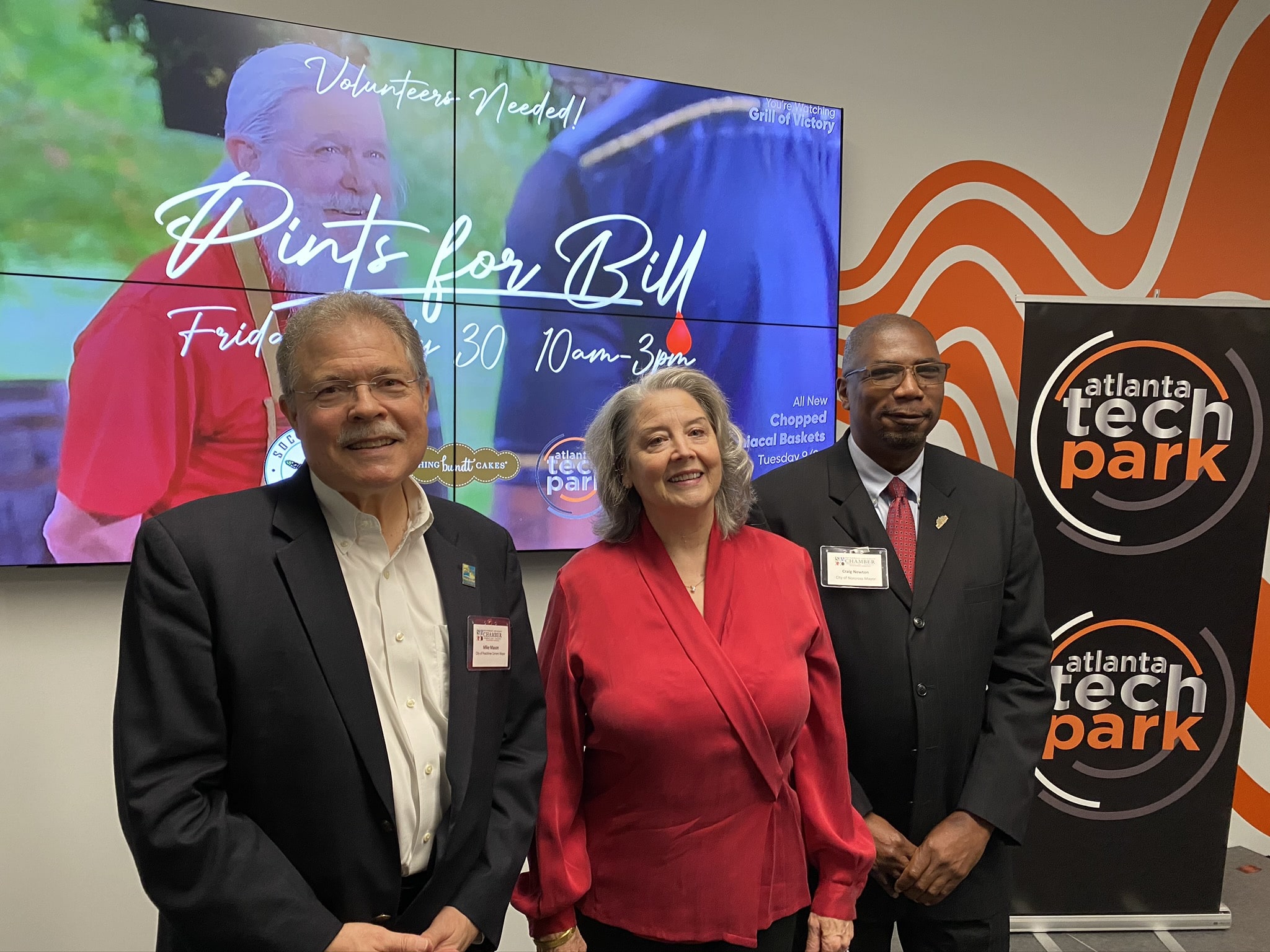
The mayors of Peachtree Corners, Norcross and Berkeley Lake shared their thoughts on improving the communities with American Rescue Plan money
A trio of Southwest Gwinnett County mayors talked about several aspects and impacts of the COVID crisis during a recent panel discussion, including how they were looking at spending money allocated to their cities as part of the American Rescue Plan Act (ARPA).
They also focused on challenges and changes emerging from the pandemic.
Mayors Mike Mason of Peachtree Corners, Craig Newton of Norcross and Lois Salter of Berkeley Lake fielded questions during a First Friday breakfast event hosted by the Southwest Gwinnett Chamber.
Plans for the cities
Mason outlined how his city created a mechanism to support small businesses with grants after Gwinnett cities received federal money under the earlier CARES act. Each qualified applicant received an allocation. He noted that in addition to the grants, air filtration and other protective equipment were also tacked on at city hall.
“With the ARPA money, we’ll do more of the same,” he said. Mason also said that plans are in the works to use some of the money to beef up broadband service in what are considered underserved areas of the city. He said some may doubt that a problem exists, but that it does.
“We learned during the pandemic that kids couldn’t get schooling from home, because if someone was in the living room watching TV, there wasn’t enough broadcast left for the kid in his room. If we can fix that, we’re probably going to try to do that.”
In contrast, Berkeley Lake Mayor Salter said that after spending considerable CARES money on sanitizing efforts and an air filtration system for city hall, they planned to go a different route under ARPA, using the federal funds mainly for stormwater infrastructure work. She said that with the city having no stormwater fee and with a preponderance of trees and hills, stormwater costs have been significant.
Norcross Mayor Newton was less definitive than his counterparts, outlining that the city has created a 12-member advisory group to make recommendations to the mayor and council on how to allocate funds. “So, we took the easy route. We turned it over to the citizens to help us decide how to spend some of this money,” he said.
Post-pandemic issues to consider
Addressing a related issue, Newton told the chamber audience that “we are not quite out of the woods yet on COVID,” contending that while declining case numbers and reopening businesses show that the vaccine is working, Georgia, as a state with a low vaccination rate, could be vulnerable to surges.
All three mayors agreed that the pandemic has been a long-term game-changer.
Several trends are important to consider in that regard, said Mason. He called for a show of hands and got a considerable response when he asked, “How many people are still working from home instead of going back to the office? That’s a trend.”
Also, residents continue to order more goods online, in his view, and he spoke about challenges in the hospitality sector, noting that Peachtree Corners has more hotel rooms than any other city in the county.
Mason said that with such mechanisms as Amazon readily available, people are reluctant to get into their cars unless a business is close by. To that end, he floated the idea of putting such residences as townhomes and apartments in closer proximity to commercial areas.
Newton noted that while businesses are optimistic about the long run, labor shortages and supply chain issues remain challenges in the foreground. Salter took a tack similar to Mason’s, saying that “it’s online everything” with resulting changes in the retail landscape and with jumping on a plane at Hartsfield to go out of town is giving way to a plethora of Zoom meetings.
Attracting and keeping residents a concern
The topics of affordable housing and of serving new residents while working to hang onto existing ones also came in for discussion. “As people begin to retire, you have to be ready to replace those retirees with a new generation,” said Newton. He added that recruiting qualified people leads to an expanded and better qualified workforce, which he said attracts more business and which, nowadays, is a more important factor than location.
In one tactic, he said the city of Norcross has positioned itself to attract more younger residents by hiring an events coordinator to focus on new entertainment and event programming. He also said that the city has joined forces with a state-sponsored program called the Georgia Initiative for Community Housing. The group has come up with some potential affordable housing solutions for Norcross to be discussed in the near future, according to the mayor.
Mason took Newton’s talk of replacing those leaving the work force with a new generation one step further, arguing for retaining retirees and their disposable income. “Do we really want to lose them to, say, Florida?” he asked. “No, you want to keep them in your city. And they want to stay. If you don’t keep retiring citizens in your city, you’re done for.”
The Peachtree Corners mayor touted adaptive reuse of existing buildings as the best solution for providing more affordable housing overall, and said news of such a project may be on the horizon. Tearing down and replacing aging apartment complexes on the city’s south side has been talked about, but Mason indicated the numbers may not work for developers.
Pointing out that her city is essentially built out, Salter said they have attracted a number of new residents nonetheless, with people tearing down existing bungalows and putting up larger residences. She said city efforts have centered around such events as July 4th programming and in providing a children’s park and other kids’ activities to bring residents together.
Leaders discuss cities’ goals
She struck a similar tone when the mayors were queried about their goals. “My goal is to preserve the cohesiveness that I think has come under somewhat of a challenge this past year with what we’ve seen in our larger political culture,” said Salter. “People are seeming more cranky with each other, for lack of a better word. It’s made me sad and concerned.”
She added that “it’s such a small town and we know each other well so I think the mayor has a little more ability to point people in a direction.”
Mason put weight on continuing “sense of place” producing efforts in the young city. He also pushed improving amenities such as walking trails, which not only can improve residents’ health but add value to homes as well, he said. He added the city also needs to continue working on both economic development and redevelopment of aging structures and that a number of alternative redevelopment strategies are being weighed.
“It’s not a simple question,” was Newton’s initial reply.
He said he’s focused on increasing economic vitality and quality of life by protecting the city’s downtown and expanded city center, which would include redevelopment and expansion to the east across Buford Highway. He said two other goals involve increasing public safety through improved technology and maintaining the sustainability of parks, historic structures and natural resources.
In considering all those initiatives, indicated his counterpart in Peachtree Corners, it’s important to remember that their impacts can easily stretch across city borders. “Craig and I say it to each other all the time,” said Mike Mason. “A rising tide lifts all boats.”
Related
City Government
Planning and Development is Changing in Peachtree Corners
Published
4 days agoon
June 6, 2024
From Peachtree Corners Mayor Mike Mason’s monthly column.
After the COVID-19 pandemic, the city noticed a development trend that focused on the importance of social interaction. It began seeing development applications for indoor pickleball, virtual racing, garden clubs, car clubs and other recreational uses.
When our city was established in 2012, it adopted Gwinnett County’s codes and ordinances to maintain consistency and these new social interaction-focused uses were not initially considered in the city’s current Comp Plan or zoning code.
Working from home is another market trend having a big impact on local office parks. This economic engine is driven by office parks such as Technology Park and there’s always been a priority placed on preserving office stock.
Even though the commercial office market is waning right now, that pendulum is still trying to figure out where it will settle in. Most of these new socially focused uses find the best home in an office setting.
Due to the increasing number of these applications and the evolving market trends, the city has imposed a six-month moratorium on projects in the Central Business District character area. The moratorium came into effect on May 3 and will end on November 3.
This halt will allow the city six months to pause rezoning applications, special use permits and variances applications for residential or mixed-use development. It will help the city maintain the status quo, stop new applications from coming in and allow for officials to consult with experts and delve deeper into the code and comprehensive plans.
The city plans to conduct extensive research, analysis and strategic planning during this period to help determine if any changes should be made to the comprehensive plan and zoning regulations.
For instance, it might be beneficial to designate downtown as a distinct character area separate from the central business district. Implementing new zoning regulations to transform it into an entertainment district or a unique downtown character area could be a viable option. Many cities have already adopted this type of zoning.
Office parks and businesses throughout the city provide a balance of jobs and residents that allow the city to be the second largest in the state with a zero-millage rate or no city property tax.
Therefore, as part of this process the city will research ways it can preserve, stabilize and enhance the economic engine through the activation of underutilized spaces within office parks.
This proactive approach will help maintain the job-to-resident balance that allows the zero-millage rate while positioning the city for success as the office market pendulum settles.
The most important thing this moratorium does is allow the city to consider what will work best for Peachtree Corners. Furthermore, it communicates to developers that the city requires a pause because current zoning regulations and comprehensive plan do not adequately address future goals.
Related
City Government
Peachtree Corners Welcomes New Community Development Director
Published
1 week agoon
June 2, 2024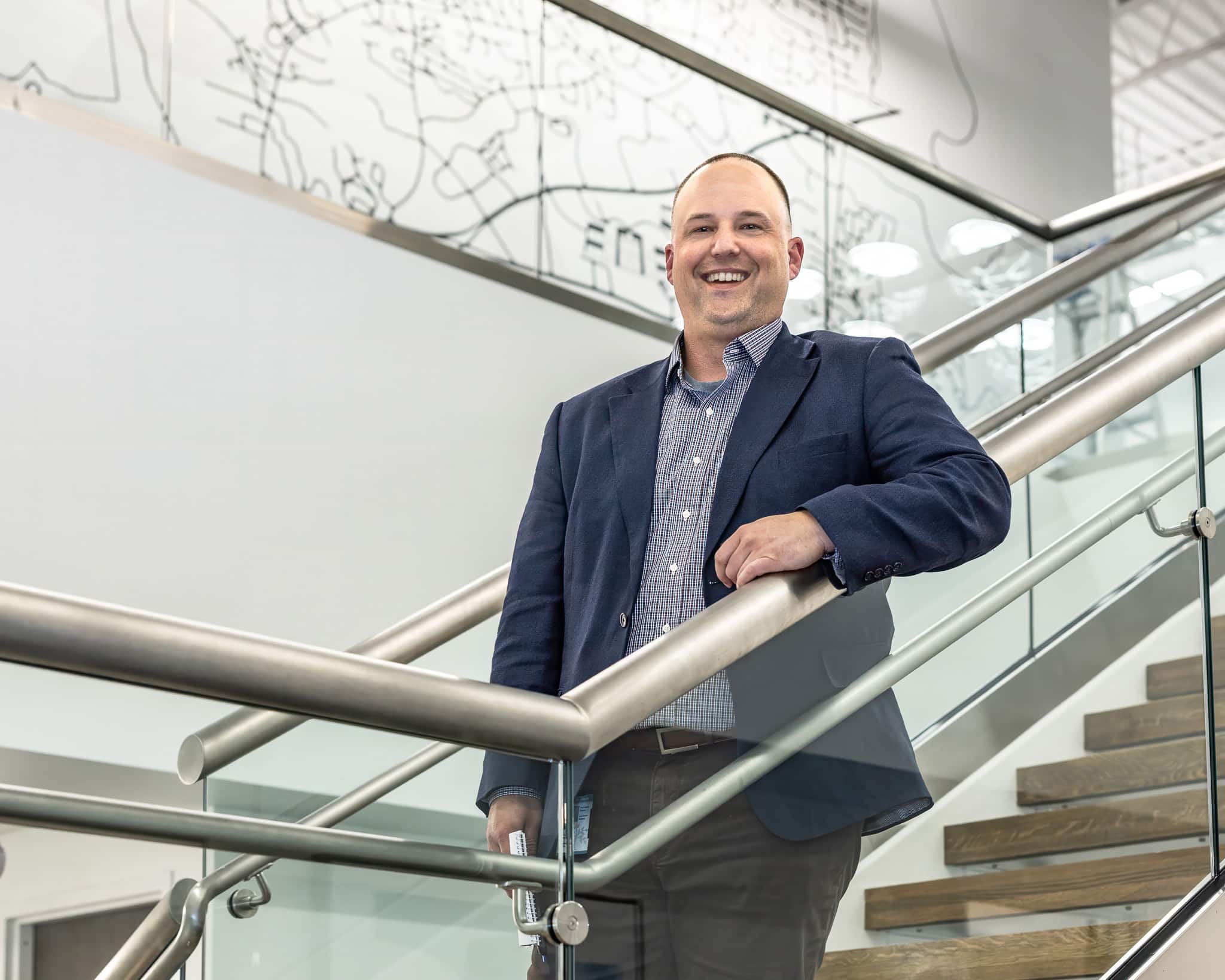
With community development director Diana Wheeler stepping down to pursue a consulting career, Peachtree Corners city leadership turned a challenge into an opportunity.
In January, Shaun Adams was hired as the assistant city attorney to oversee compliance for land use and economic development-related matters and help with legal issues.
His background in public and private sector development made him the ideal replacement.
As luck would have it, Adams moved to Georgia in 2005, selling real estate while attending law school.
“I actually started working down at the capital a lot, lobbying on various policies right out of law school,” he said. “I was the legal counsel for the Senate Judiciary, and that exposed me to ACCG, which is the State County Association, which represents all staff and elected officials for counties across the state.”
With the motto, Advancing Georgia’s Counties, ACCG helps with the policy aspect of things like training and education.
“While I was a lobbyist for them, I focused on economic development, infrastructure-related issues and whatever policies went into place,” Adams said. “We also went around the state and trained our commissioners and their staff on some of those policies and put their new processes in place.”
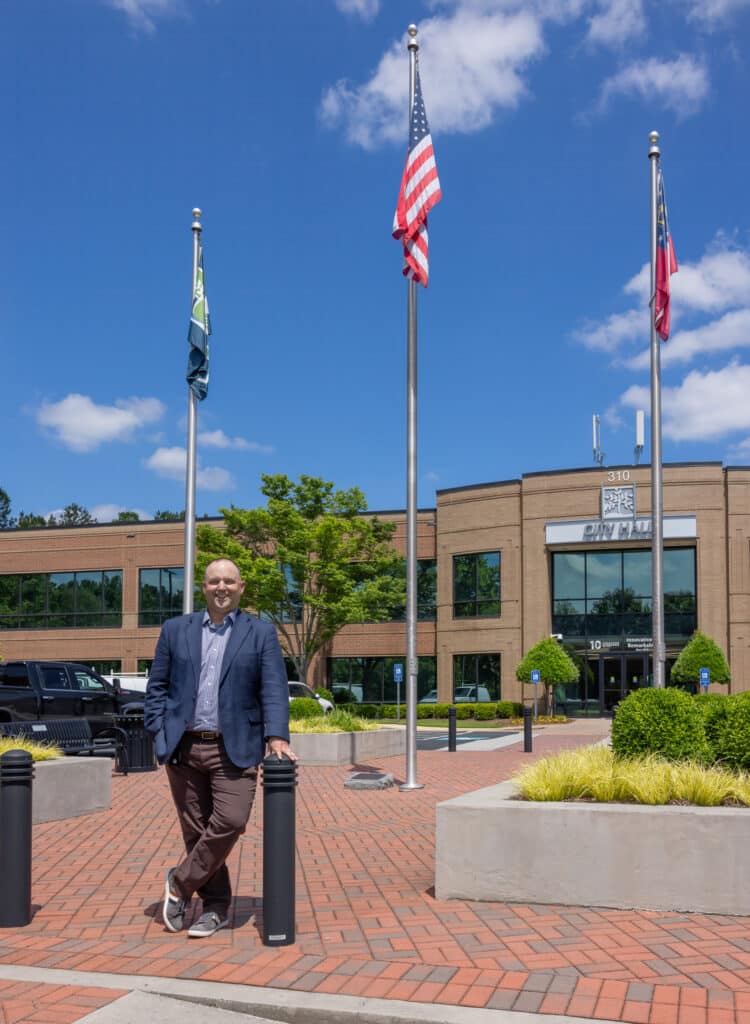
Local government possibilities
“After a handful of years, I got lured away into the private sector,” he said.
Working on land use and government relations matters from the other side of the table, Adams represented developers and investors.
“Sometimes [investors would] come to me with a property that they bought, and they’d say, ‘Hey, we bought this on investment. We’d like to see how we can make the highest and best use of it. Help us create a vision,’” he said. “So, I helped put a team together to determine what we thought could go on the site based off of local government zoning.”
His job entailed working with architects and engineers to design the site and help the client take it to market. Ultimately, the contract purchaser would come in and seek needed entitlements.
“I would help with that,” Adams said. “Those were the fun ones because you got to start on the ground.”
Adams got to know many different local government jurisdictions and worked extensively around metro Atlanta on various matters. On a busy week, he may work with five different jurisdictions across the state.
As a family man with a wife and two sons, he began looking for something that would keep him closer to home.
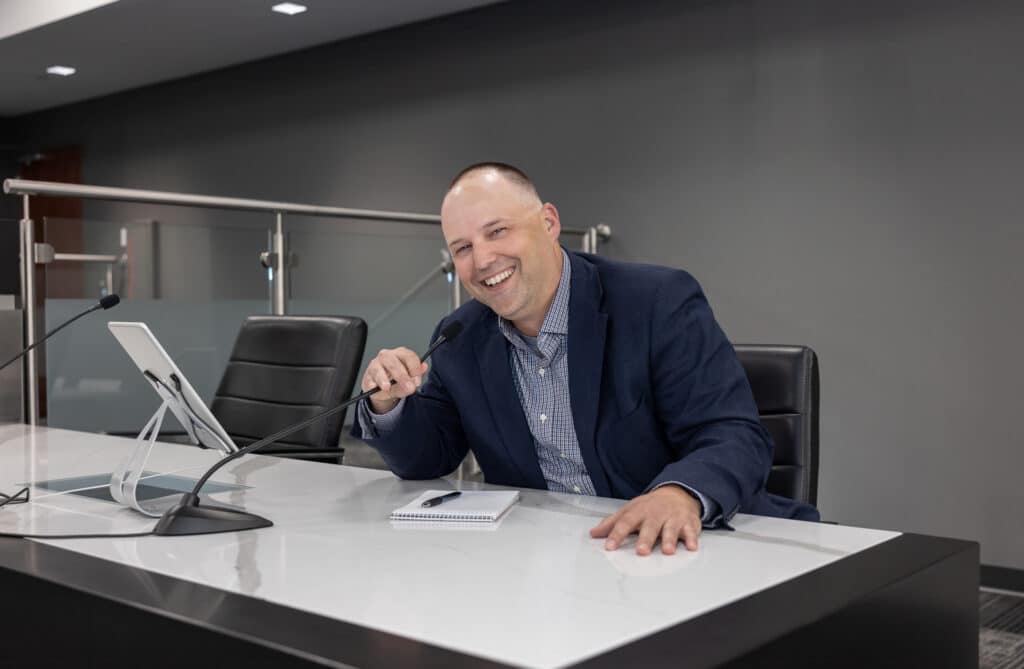
A perfect fit
City Manager Brian Johnson says it was serendipitous that Adams was looking for a position at a time when the city needed someone like him.
“It’s actually a hard position to fill, and I just happened to catch him,” said Johnson. “We were familiar with each other because he’s represented a number of clients coming before the city.”
Johnson said that Adams was legal counsel for some of the most significant developments in the last few years: North American Properties purchasing and revitalizing The Forum, housing development Waterside, and Intuitive Surgical moving its headquarters from the West Coast.
“He was on the other side of the table as we worked together to make these projects ultimately better for the city and better than they were upon their initial submittal,” Johnson said.
“And I knew then that he was a really knowledgeable guy that really knows how to deal with people. He’s a problem solver. He’s always looking for ways to figure out how to resolve conflict and navigate minefields as it relates to land use and all the laws and zoning that apply to it,” he added.
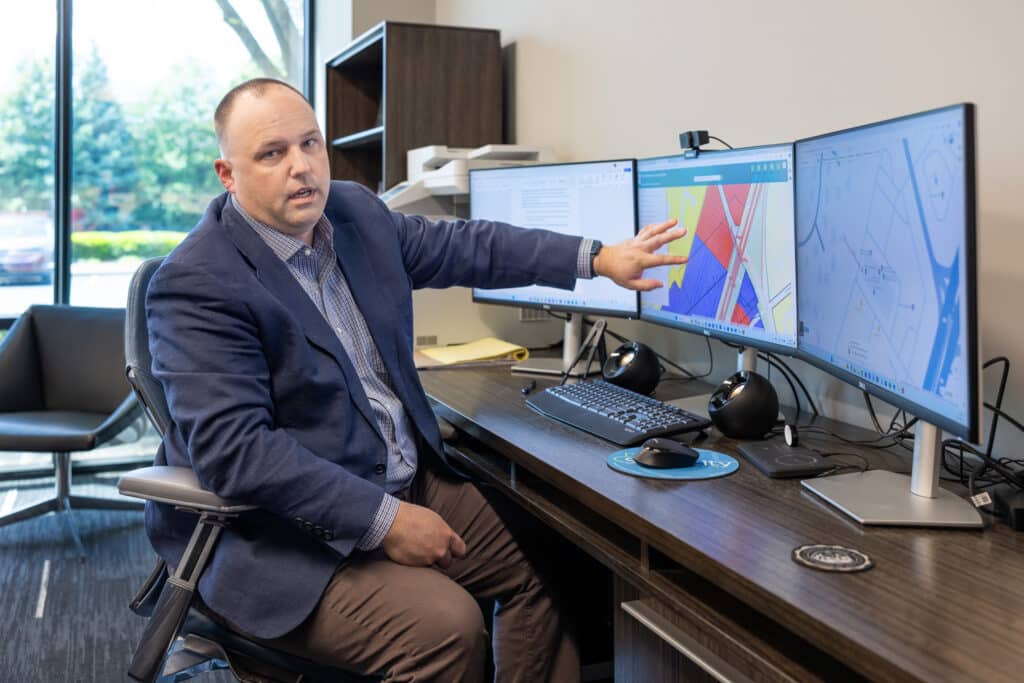
Changes to the job
Although Wheeler is no longer a staffer, she’s still doing work for the city.
With Adams’ legal background, the events planning team will be transitioning out from under community development.
“By taking that off my plate, it’ll allow me to do more with the legal side of things that the position didn’t do previously,” he said.
There will also be a shift with code enforcement duties moving under Chief Marshal Edward Restrepo.
“I moved code enforcement underneath the city marshal’s office because code enforcement and law enforcement are almost like fraternal twins — they both do very similar things,” said Johnson. “Each of them is enforcing a different level of law. Code enforcement is municipal code, and law enforcement is state code, but they work hand in hand.”
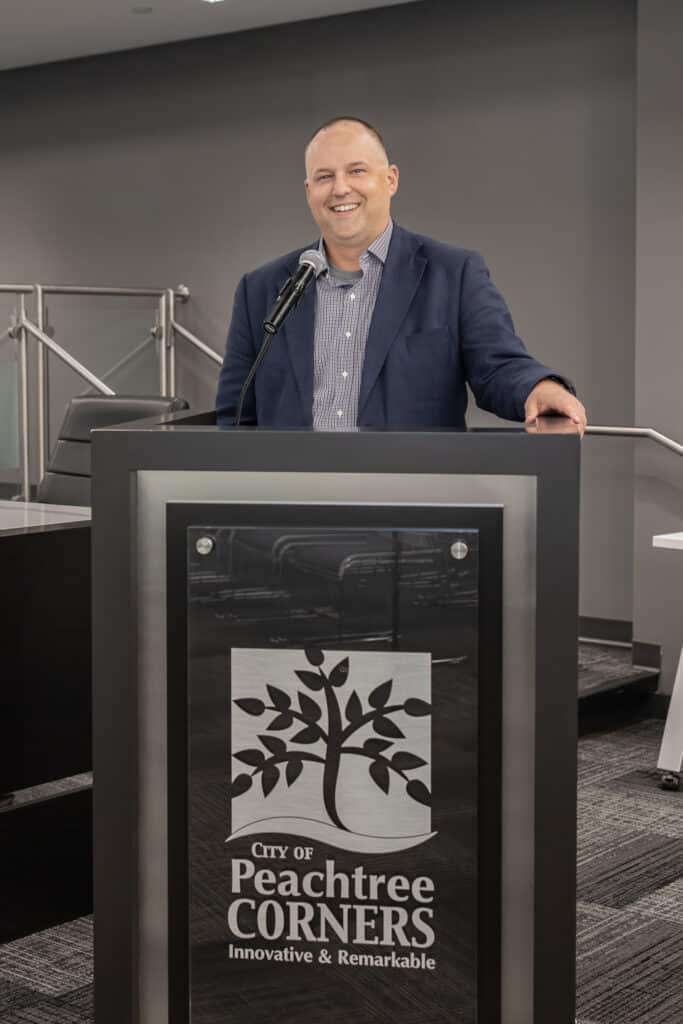
The events planning through the end of the year has already been moved from the community development director’s department. As a consultant, Wheeler will work with other contractors to manage the happenings at the Town Center. Director of Communications Louis Svehla has already moved into managing premier events, Johnson said adding that the city may use more consultants in the future under Svehla’s management.
“He has really shown his ability to manage special events very adeptly. He really showed me that skill set when we had last year’s Criterium bike race,” said Johnson. “I decided to take advantage of some opportunities, including our partnership with Audi, which we were going to announce to the whole vulnerable road user thing.”
With only three months to prepare, Svehla pulled off the event without a hitch.
“He did an outstanding job and so he is capable of taking the management of our community events, our concerts and stuff,” said Johnson.
Johnson said the city is still utilizing consultants for some aspects of special events, but if consultant fees become more expensive than hiring someone full-time to assist Svehla, he’ll make that call.
“All those moves have happened, and I’ll sum it up by just saying that I’m just playing to the strengths of these people and utilizing a great team that I have, and it’s working out really well,” Johnson said.
Related
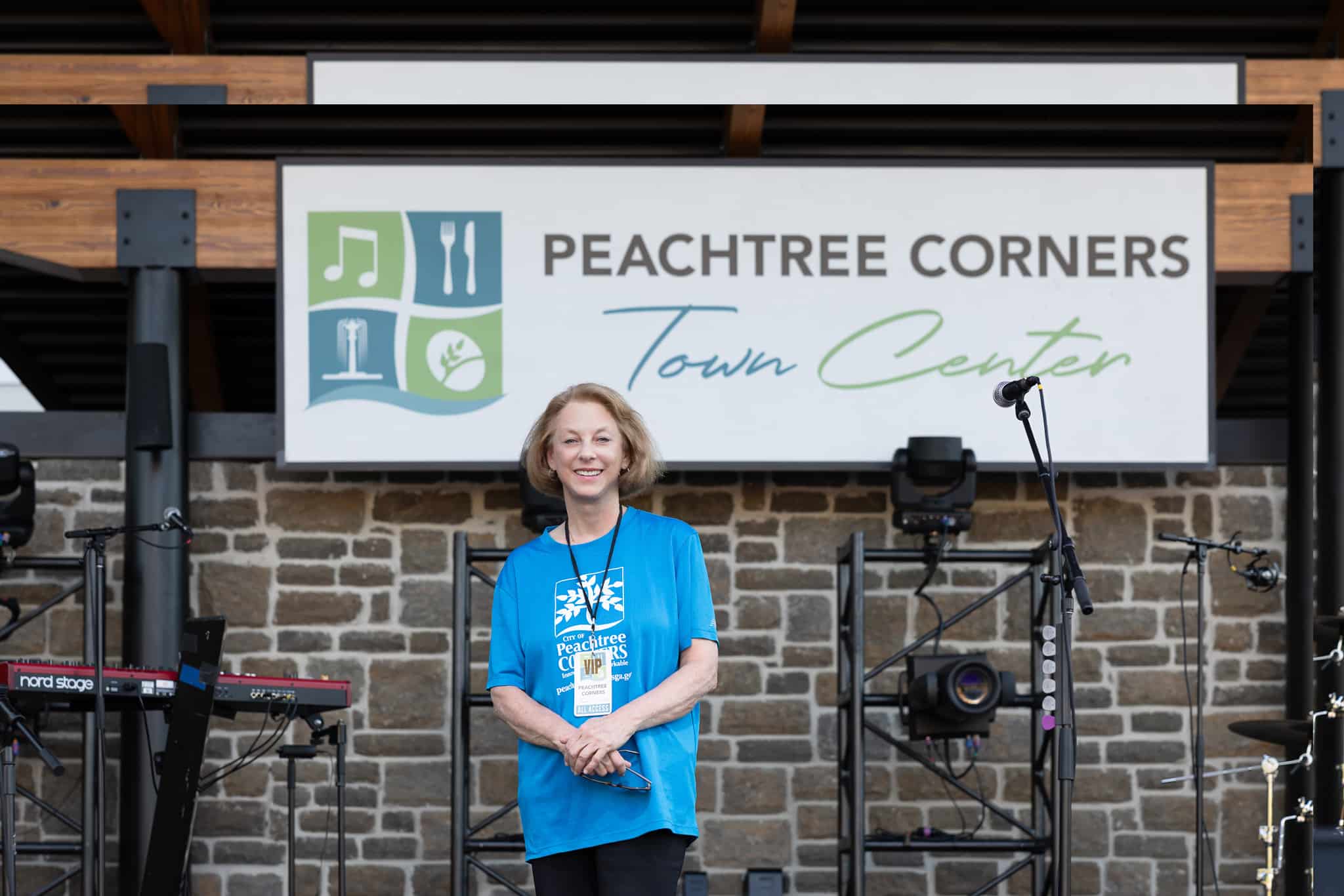
Diana Wheeler starts her own consulting business
When a city is established, there’s a lot to do to get it going. One of the most important decisions is hiring effective staff. Diana Wheeler was one of those qualified employees who helped turn Peachtree Corners into the community it is today. She’s also credited with being the city’s first hire.
“I worked in Alpharetta for about 20 years as a community development director, and I decided that it was time to try something new and different, something I hadn’t done before. I was going to start up my own consulting business,” said Wheeler.
She was only a few days into her new career when the city of Peachtree Corners called.
“They said, ‘Hey, we’d like you to come and help us out. We’re starting up a new city, and we don’t really have any planners. We need a community development department,” said Wheeler.
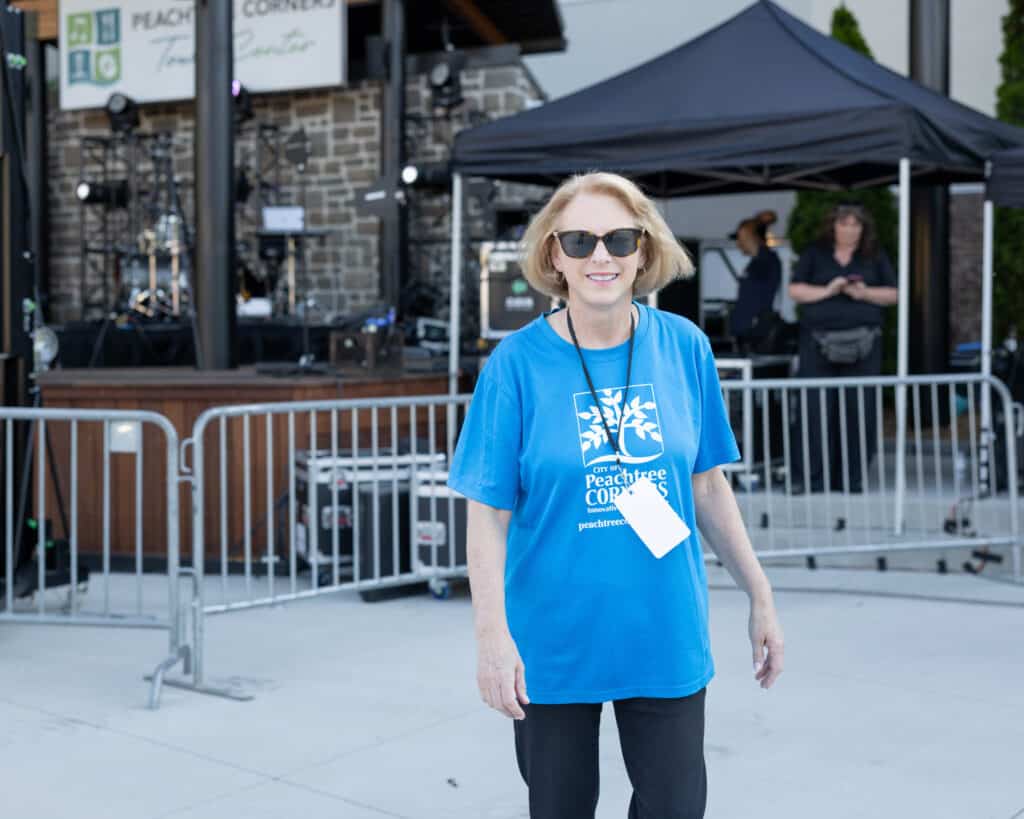
So, she went back into city government work and put off starting her business.
Years of service
“I was the only employee for a while,” she said. “There were a lot of interesting times, and there were opportunities I’ve never had before, like setting up all of their programs and systems at the beginning.”
At a City Council meeting on April 23, Wheeler was recognized for more than 12 years of dedicated service to the city.
“A lot of things were accomplished, and after 12 years, I thought, well, you know, I still want that one last sort of professional challenge that I hadn’t ever done before, which was to go out on my own and take advantage of the connections that I’ve made over the years and work on projects that were of interest to me,” she said.
She let the city leadership know that it was time for that change and that she’d be making that change at the end of April.
“Diana’s daily presence was profoundly valued by her colleagues, who benefitted from her expertise, leadership, and perhaps most importantly, her composure in the face of the numerous challenges that the Peachtree Corners city government has encountered during her tenure,” read a statement from the city.
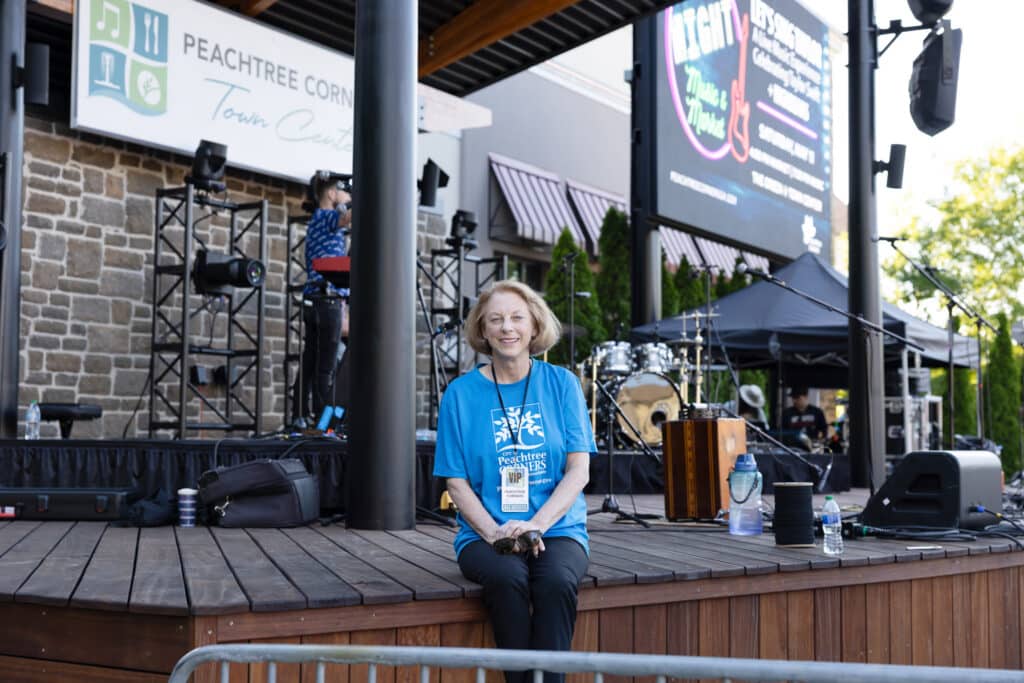
Don’t call it a retirement
As the community development director, Wheeler wore a lot of hats, metaphorically speaking.
“When I was community development director, I had four divisions: the building department, which issues permits and performs inspections; code enforcement, which basically enforces the city’s regulations in commercial and residential areas; planning and zoning, which does all the public hearings and all the zoning research work, and when we added the Town Center, we added special events,” she said. “It’s just a lot of different things. And the city has a very limited number of employees. So, everybody does multiple tasks.”
But she hasn’t entirely left the city. Through the end of the year, she’ll be coordinating the special events at the Town Center.
“We’ve got an incredible lineup. We have all sorts of really cool concerts … and we’re also introducing a night market, which is like a farmer’s market,” she said.
The market will take place on the second Saturday of the month and will have about 14 different vendors selling produce, homemade products, and other items.
“We’re going to have a talent competition this year,” she said. “It’s called Peachtree Corners Has Talent, and we’re asking people to submit YouTube videos, and there are prizes for winners.”
Additionally, there’s a children’s festival and one for the canines in the new dog park.
“On December 4, we’re going to have the huge holiday glow event, which is our big holiday gala at the town center with a concert and Santa and all sorts of stuff for kids to do and a sing-along and lots of free hot chocolate and cookies and things like that,” she said.
Wheeler is unsure if she’ll continue working as a consultant with the city beyond December, but she’s excited about her next chapter. Her consulting business is focused on special projects.
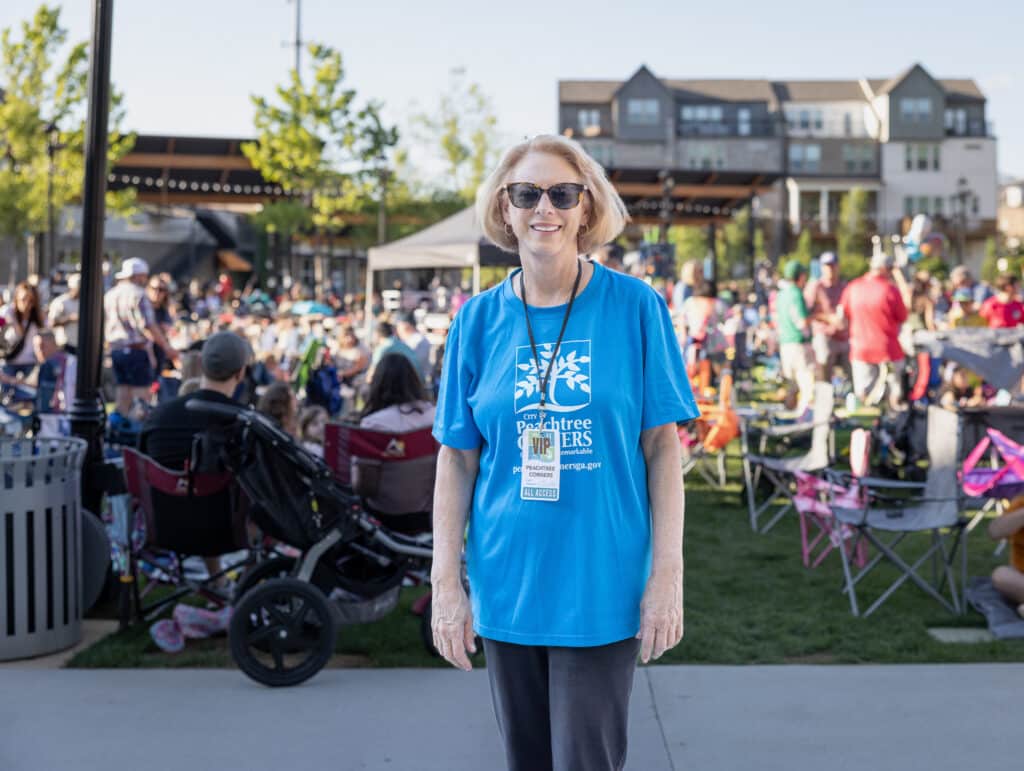
A new journey as a consultant
“In communities where they have a limited staff but would like to take on a project, for example, the city of Jasper and the city of Milton have two different areas where they have projects that they would like to take on, but they don’t have the staff resources,” she said.
That’s where she’ll come in.
“They hire people sort of as a side project to work just on that project. And those are the sort of things that I would do,” she said. “I get to focus on a specific project and don’t deal with the day-to-day things.”
Wheeler said she likes that she gets to choose what she wants to work on and use her skills and experience to the fullest.
Highlights of Wheeler’s career with the city of Peachtree Corners:
- She laid the groundwork for the establishment of Peachtree Corners’ inaugural City Hall.
- She was instrumental in the development of the Holcomb Bridge Corridor Urban Redevelopment Plan, Livable Centers Initiative, Innovation Hub Master Plan, Winters Chapel Road Corridor Study and conceptual planning for the Multi-Use Trail network.
- She established and nurtured the Arts Council, created the Arts & Culture Master Plan, and promoted other public art initiatives, bringing the residents enriching cultural experiences, artistic expression and a sense of community pride.
- She played a pivotal role in the establishment and ongoing support of the Peachtree Corners Planning Commission, Zoning Board of Appeals, Downtown Development Authority, Redevelopment Authority, Arts Council, and Green Committee.
- She played a crucial role in securing the city’s Green Community Certification and its Tree City USA recognition.
- She spearheaded the implementation of the city’s initial zoning laws and led the Code Enforcement, Building and Permitting and Planning and Zoning Departments.
- She pioneered the city’s first Comprehensive Land Use Plan.
- She played a key role in launching Special Service Districts, contributing significantly to their initiation and success.
- She Diana guided Town Green and Town Center initiatives.
- She organized and managed Peachtree Corners’ special events.
Related
Read the Digital Edition
Subscribe
Keep Up With Peachtree Corners News
Join our mailing list to receive the latest news and updates from our team.
You have Successfully Subscribed!

Best of Peachtree Corners 2024: Readers’ Choice Awards

The Forum’s Transformation: A New Chapter in Peachtree Corners

Steve Gasper, in the Run-Off for Gwinnett County School Board, District 3

Local Marketing Production Company Vox-Pop-Uli Finds Peachtree Corners Right for Business

Peachtree Corners Welcomes New Community Development Director

Book, TV and Podcast Recommendations for this Summer

Good Samaritan Gwinnett: Primary Medical & Dental Care Mission [Podcast]

Local State Reps Give Roundup of Legislative Session

Steve Gasper, in the Run-Off for Gwinnett County School Board, District 3

Shana V. White in the Runoff for Gwinnett County School Board District 3

Planning and Development is Changing in Peachtree Corners

How Gwinnett County Public Library is Helping Students Earn Accredited Diplomas

Twin Authors Chronicle Antics of ‘Four-Legged Brother’

Wesleyan Seniors Set Sights on Careers in the Armed Forces

Transforming Offices to Apartments & Building, and New Cities from Scratch with Brian Johnson [Podcast]

Good Samaritan Gwinnett: Primary Medical & Dental Care Mission [Podcast]

Light up the Corners [Video]

Capitalist Sage: Business Leadership in Your Community [Podcast]

Cliff Bramble: A Culinary Adventure through Italy

Top 10 Brunch Places in Gwinnett County

A Hunger for Hospitality

THE CORNERS EPISODE 3 – BLAXICAN PART 1

Top 10 Indoor Things To Do This Winter

The ED Hour: What it takes to Remove Barriers from Education
Peachtree Corners Life
Topics and Categories
Trending
-
Education4 days ago
Steve Gasper, in the Run-Off for Gwinnett County School Board, District 3
-
City Government1 week ago
Peachtree Corners Welcomes New Community Development Director
-
Arts & Literature1 week ago
Book, TV and Podcast Recommendations for this Summer
-
Health & Wellness6 days ago
Good Samaritan Gwinnett: Primary Medical & Dental Care Mission [Podcast]



